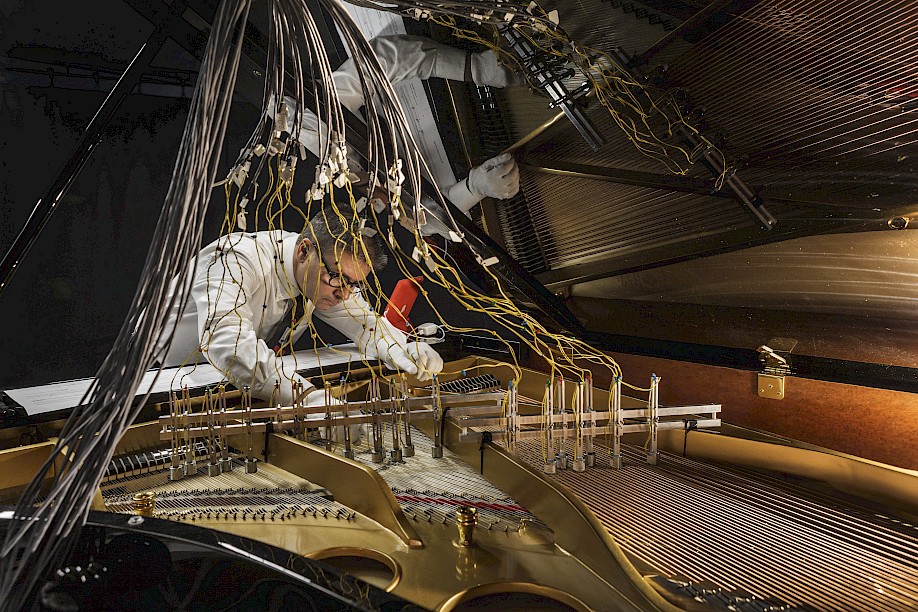Concert: "BEYOND-Future Sound"
BEYOND - Future Sound
Friday, 5.10.2018
Beginning 19:30
Location: ZKM Cube
Special guest Eduardo Reck Miranda Biocomputer Rhythms
Eduardo Reck Miranda (piano) and Edward Braund (bio-computer) A duet for a pianist and an interactive biocomputer which is based on unicellular organisms known as Physarum polycephalum.*
beyond@night
=========
beyond@night
Freitag 5.10.2018
Beginn: 22:00
Ort: Lichtbrücke HfG
Actors/DJs AKA
Zippo Till Kniola
Acid Maria Anki Lepper
Program "Future Sound"
The Shape Dohi Kim Intermingled sound and video
AI Deviations #11 Yasunao Tone Christian Sünkeberg (internet/tech support KA), Felix Bucholz (support NYC), Tony Myatt research support) , Mark Fell research support) Remote internet performance of Yasunao Tone and his virtual algorithms between New York and Karlsruhe
border Kiyu Nishida Christian Sünkeberg (internet/tech advice KA) Mobile devices interact with the composed piece, - please bring/use your smartphone
Biocomputer Rhythms Eduardo Reck Miranda Eduardo Reck Miranda (piano) and Edward Braund (bio-computer) A duet for a pianist and an interactive biocomputer which is based on unicellular organisms known as Physarum polycephalum
reFlection Paul Modler Loudspeaker robots explore spatial properties in liason with multichannel audio projection
Deuxième Objet Rotatoire / genvid:gestalt1 Alan Fabian, Christoph Seibert Visual objects created by a generative algorithm accompany sounds from an inside piano
ORA – Orgue et Réalité Augmentée Christophe d’Alessandro, Markus Noisternig heterogeneous sonic worlds of pipe organs and electronics
das Neue Stück Ludger Brümmer the New Piece for the Klangdome
![]()

* THE COMPOSITION:
Eduardo Reck Miranda’s Biocomputer Rhythms is duet for a pianist and an interactive biocomputer. The biocomputer listens to the piano and generates responses in real-time. It uses electromagnets to vibrate the strings of the piano and percussion instruments.
The system employs bioprocessors made with a unicellular organism known as Physarum polycephalum. Each bioprocessor works like a resistor that has memory. The sounds of the piano are converted into voltage variations, which are input to the bioprocessors. The components process the voltages and outputs respective current values, which are converted into commands to vibrate specific strings of the piano or play a percussion instrument.
The biocomputer harnesses the intrinsic intelligence of Physarum polycephalum to implement a new kind of Artificial Intelligence system, referred to a natural Artificial Intelligence, or n-AI.
The interactive biocomputer was developed in collaboration with Edward Braund at the University of Plymouth’s Interdisciplinary Centre for Computer Music Research (ICCMR) in the United Kingdom.
Contact
Interesse? Fragen?
Rufen Sie uns an:
+49 (0)721 / 8100 6001
oder schreiben Sie uns:
info@beyondfestival.com




